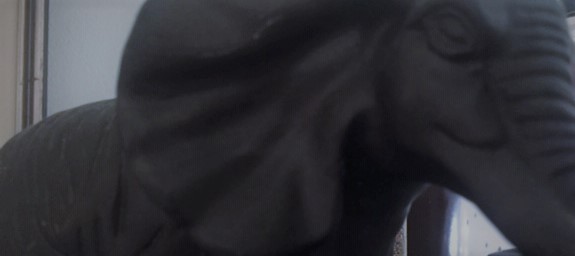It now seems that an old elephant in the room – about the misconduct of banks and financial institutions – has been revealed by the Hayne Royal Commission.
Bleak as my comment may be, I suspect that if a Hayne were to inquire into many areas of business in Australia he would find the same animal.
Let’s take small to medium enterprises SMEs, or small business, and to make it easier, let’s focus on cafés and restaurants and ‘food’.
My informed speculation is that the majority of food SMEs are non-compliant in relation to employees’ wages, taxes and superannuation, and probably WHS requirements. Many are zombies or insolvent and should not be trading; they are only able to ‘survive’ by non-compliance with the law, in particular tax laws.
Apart from the negative impact on the revenue and their employees and others, there is a negative impact on business competition; the only way a new business can enter the food industry is to likewise be non-compliant. The construction industry is or has been an example of that decline.
Reviews by FWO and others show this, in particular in the food industry. A Hayne would reveal more and probably worse.
Like the banks, all this is known but the elephant is being ignored. SMEs have a special place in politicians’ thoughts – the proverbial ‘backbone … etc’. But they are also shown to owe billions in unpaid tax debt, and to abuse their workers – not all but many. 
An edifice
This whole edifice should not continue. It has been going on for too long. Back in 1993, members of parliament, in a debate about tightening up the tax laws for this very reason, referred to how business owners would take out their employees’ tax moneys but not then pay them to the ATO. Instead, they would use them for their businesses’ ‘cash flow’ purposes.
As one MP said:
‘At no time is the tax ever the property of the directors; it is the income of the worker and it is claimed by the government as a prepayment of an employee’s tax liability for the year. If the directors do not fulfil the duty to remit the money to the Tax Office, basically they are committing theft’.
In other words, the business was not viable without reliance on criminal theft. That might well be said now in food and many other businesses.
And another MP said that
’employers who decide to solve their short-term liquidity problems by dipping into the employees’ pocket, which is effectively what they do when they hold onto that group tax, should face the force of the law. It is not their money, never was, never will be and should not be held by them on behalf of the employees out of the employees’ income’.
A system open to abuse
It is all still happening. In fact, on its face, it is a system well open to abuse – relying on an employer to take money from its employees and pay it to the ATO?! Really?! Why not have the employer pay the employees their wages in gross and they can each pay the ATO?
Single touch payroll
One start of an answer is single touch payroll, with an emphasis on pay. Payment made on-line – an irrevocable authority? – at the time of the reporting each quarter, or perhaps monthly.
Removing tax from the equation of a business operating model, early and regularly, would serve a business well, and allow clarity into its business viability, or not.
But as we all know, the government backed off on demanding payment of regular taxes each quarter, or month. Instead it requires only reporting, then waiting, and waiting, for payment.
And so we continue to have new laws introduced about phoenix companies, tax penalties, directors liabilities, jail terms and more, all as if seen to be doing something, but all ineffectively retrospective in legal impact, when the answer lies in payment up front.
Mr Hayne did not look at our largest bank – the ATO – in his inquiry. Perhaps he should have.
Good luck.
31 October 2018.




